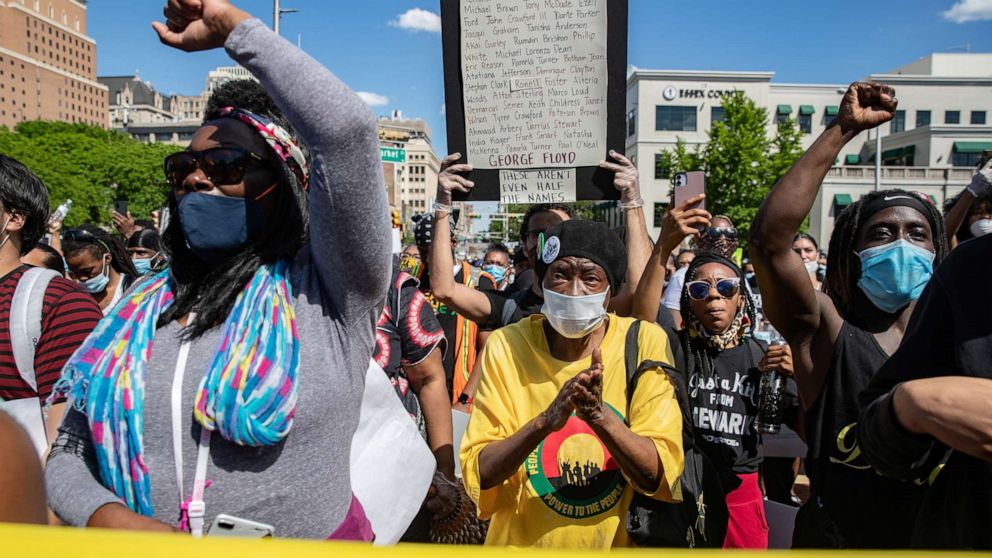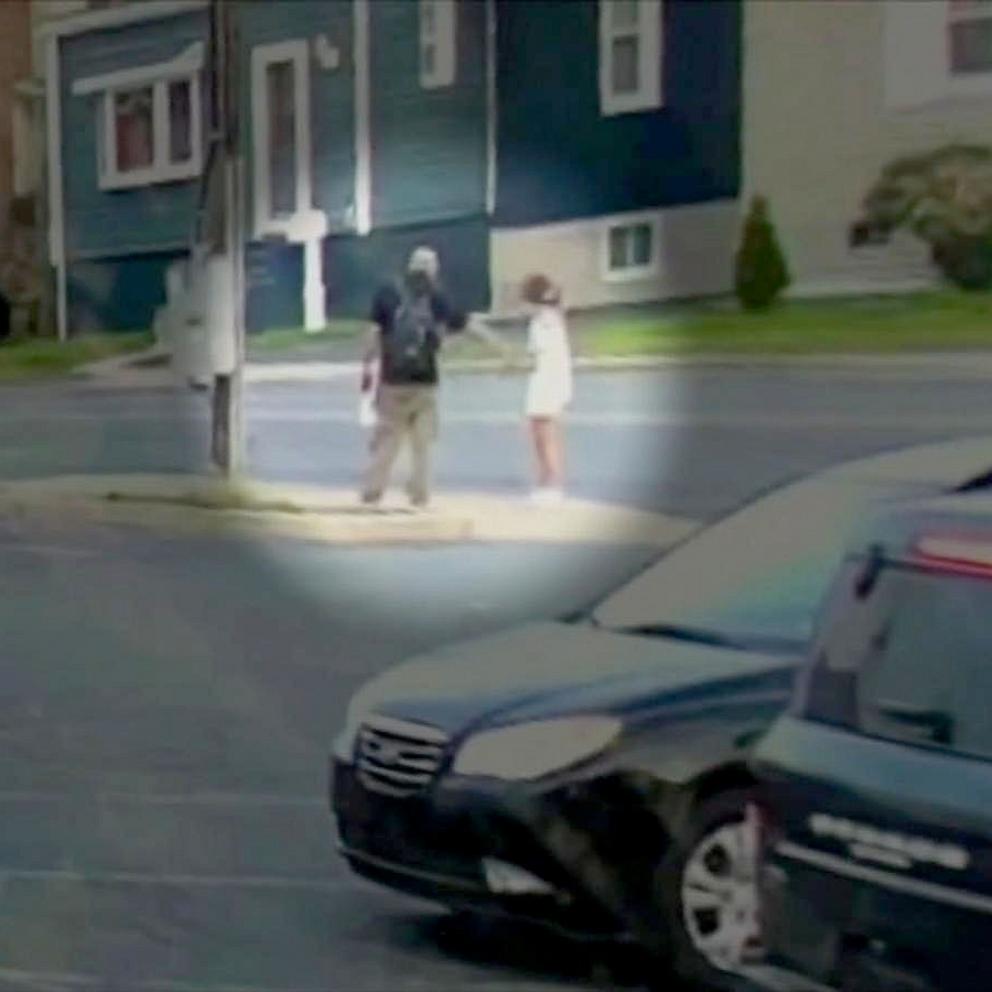Peaceful protests for George Floyd prevail in New Jersey, despite history of racial tensions with police
For the past week, tens of thousands of protesters have taken to the streets -- in the U.S. and all over the world -- to voice their anger over the tragic death of George Floyd, a black man who died in police custody with a white officer's knee on his neck.
In several U.S. cities -- Boston, Atlanta, Philadelphia, Minneapolis, Los Angeles -- peaceful demonstrations descended into violence, with some rioters hurling rocks, bricks, glass bottles or Molotov cocktails at police, and setting police cars on fire. Vandals shattered storefront windows and looted stores.
In turn, police reacted aggressively, firing tear gas and stun grenades into crowds, while city and state officials deployed thousands of National Guard members and implemented curfews.
However, in some of New Jersey's cities, such as Newark, Camden, Paterson, and Englewood, demonstrations have remained relatively peaceful.
City officials and residents attribute this to improved community and police relations, political and activist leadership and, for some, the still-traumatic memories of the riots of 1967. Further, the organizers of the protests have been able to keep the focus of the protests on larger issues -- systemic racism and injustice.
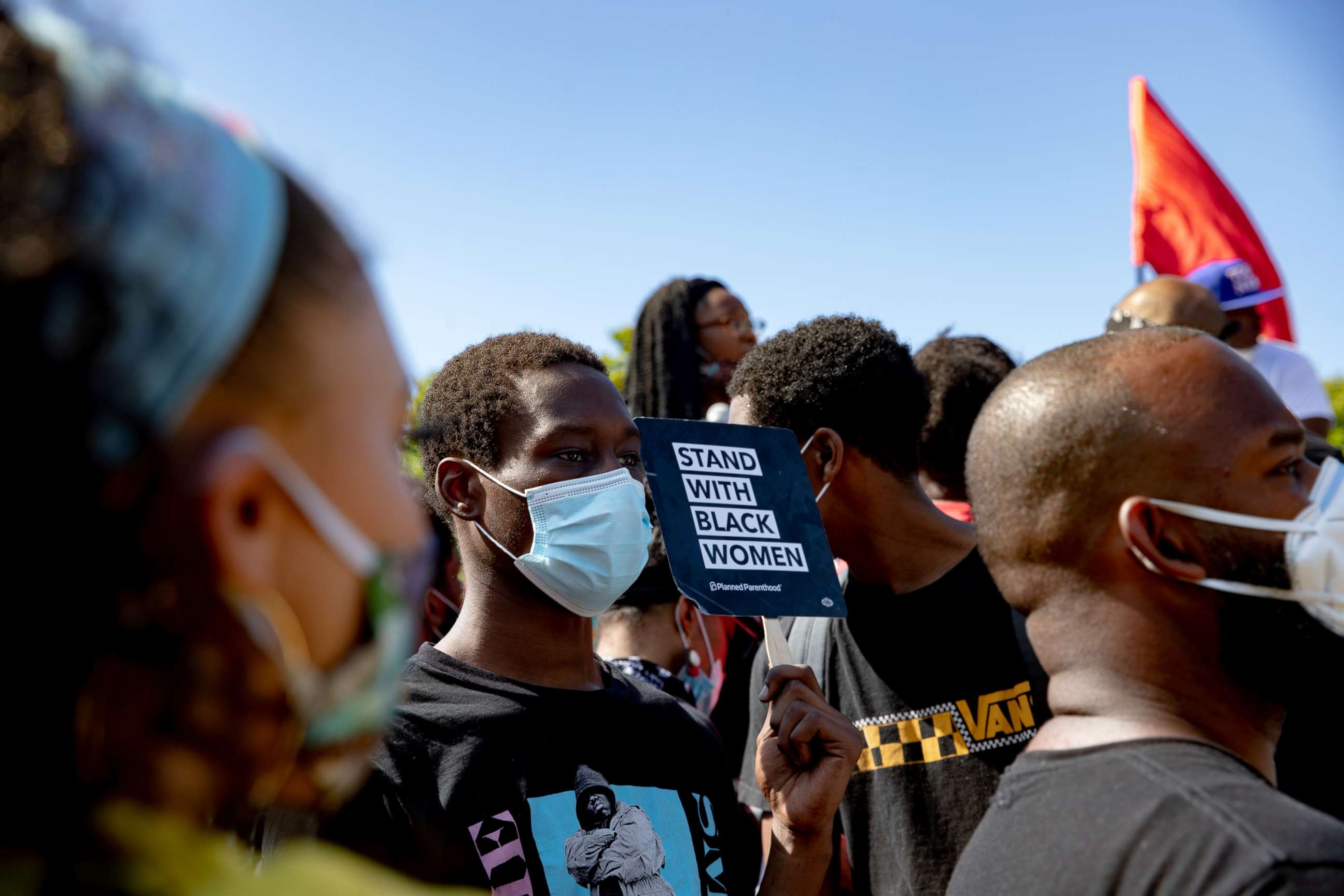
In Newark, civic leaders, police and mayors from surrounding cities in New Jersey participated alongside residents in peaceful protests on Saturday, while members of People's Organization for Progress circulated throughout the crowd, encouraging orderliness, social distancing and handing out water.
Newark is a city that, for decades, has been haunted by simmering racial tensions. The infamous 1967 Newark riots, five days of violent unrest, happened after a black cab driver was arrested for a minor traffic violation and badly beaten by two white officers.
Thousands of residents took to the streets, protesting police brutality. The situation quickly escalated, leading to looting and destruction -- 26 people died, scores were injured and property damaged totaled tens of millions of dollars.
"This city went up in flames, and we are still trying to recover from that 50 years later," Newark Mayor Ras Baraka said during a speech to about 3,500 protesters. "My father was beat in the head in the rebellion in 1967. This story is not just a history lesson for me, it is very personal for my family in this community because we were injured in this rebellion."
Lawrence Hamm, a Democratic candidate for U.S. Senate and longtime civil rights activist, and the chairman of the People's Organization for Progress, which organized the event in Newark, credits the relative peacefulness of the protests in Newark to the demonstrators themselves.
"I don't know if 'peaceful' is really the right word," Hamm said. "People say 'peaceful protest,' but a protest is a disturbance of the peace."
"If I had to boil it down to one factor," he added, "I would say that one of the reasons that the protest has not been destructive is because people want to keep the narrative about the protest, on the issues of justice."
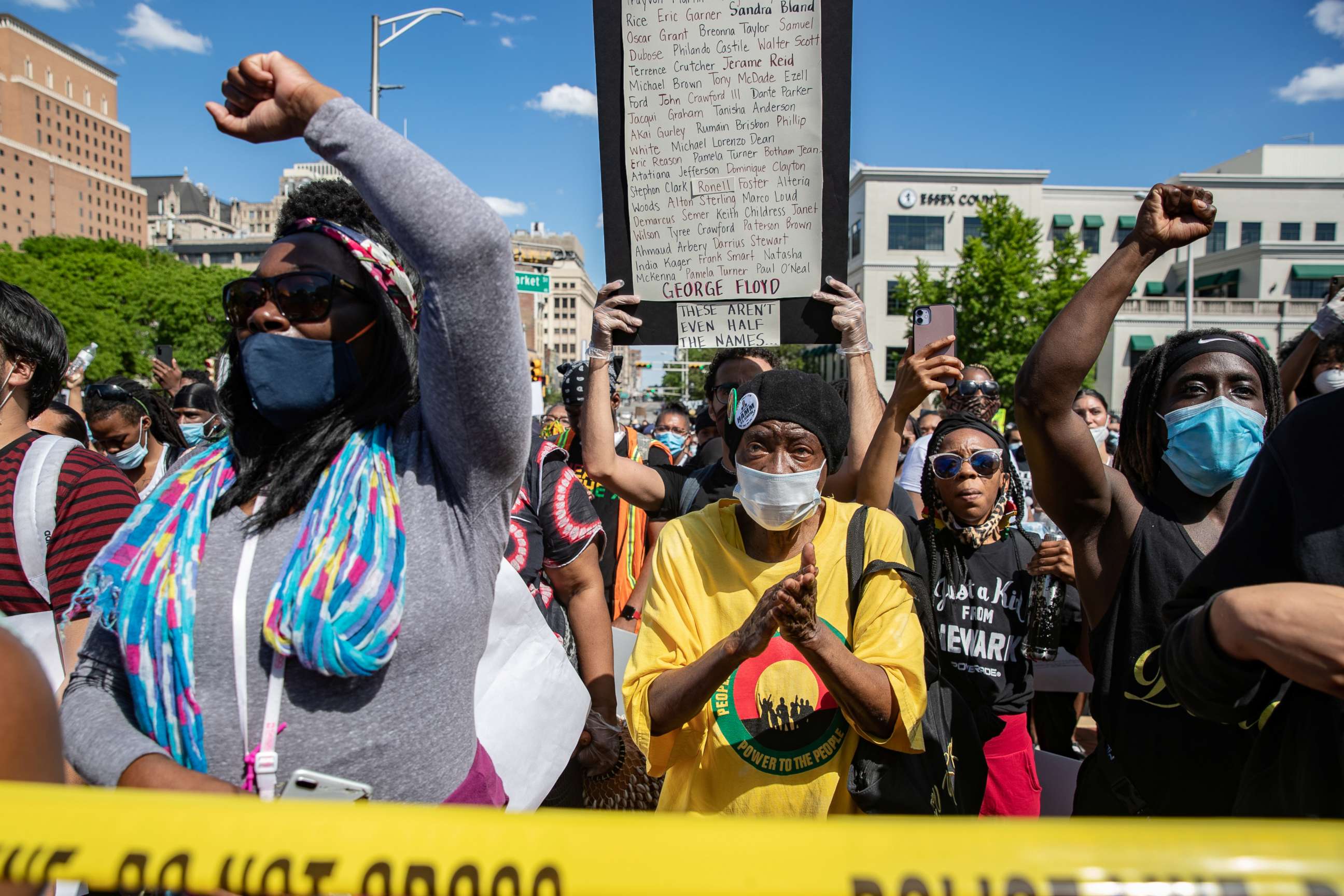
When Hamm spoke to the crowd on Saturday, he told ABC News he pointedly asked, "What do we want the narrative to be tomorrow, about what we did today?"
"We are here to march and protest the death of George Floyd. If you're here to do something different, you're not with us," he said.
The death of Floyd incited tremendous anger because "people saw his death in real time. It was almost as if it was a public execution," Hamm explained. "People are outraged. People should be outraged. But we should let outrage move us to action for justice. And that is what we are trying to do in New Jersey."
Newark native Bill Davis, a professor of Africana Studies at Rutgers University, attended the protest on Saturday.
He agreed with Hamm, adding, "The shop owners in downtown Newark are not doing anything to cause issues with people that were involved in the march, so there was no reason to vent our rage toward them. Our rage needs to be channeled toward the systemic racism that we're there to protest."
Davis, who witnessed the 1967 rebellion, called the protests in memory of Floyd one of "the most historic moments in the history of the country."
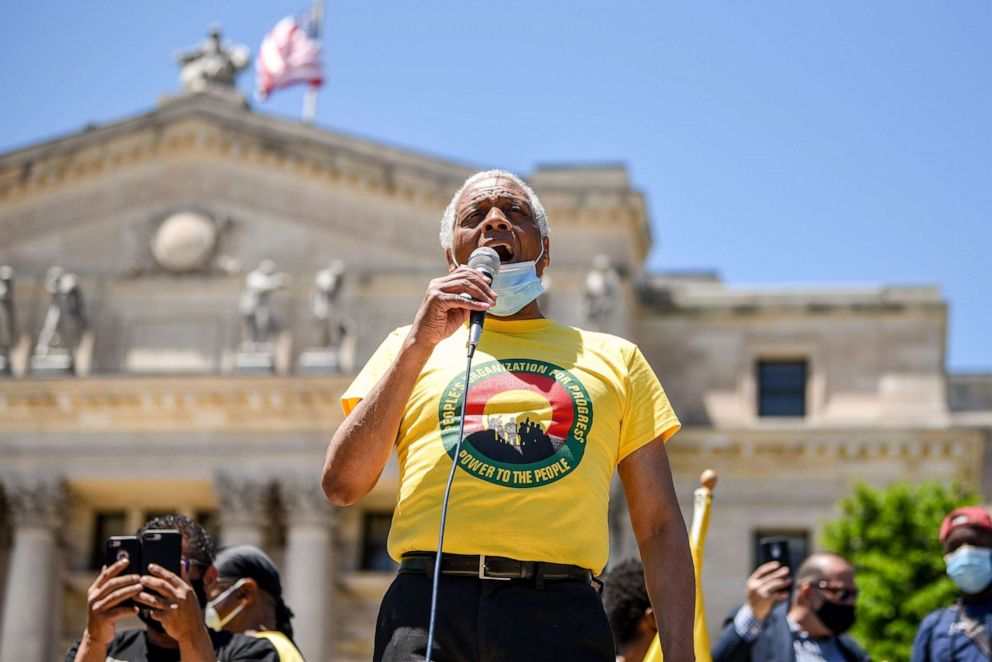
According to Hamm, another factor in the peaceful protests was the attitude of the police, who didn't show up in riot gear, instead setting a relatively passive tone. Overall, he said, because of Baraka's anti-police brutality policies, "The police have not been that aggressive."
And for the last three years, his organization has frequently protested outside the federal building in Newark.
"We've had a lot of interaction with the police," he added. "So when we marched on Saturday, the interaction with police was almost routine."
Demonstrations also were peaceful in Camden, where the city's white police chief joined with demonstrators.
"It's not us policing the city -- it's us together. It's community policing," Camden County Police Chief Joseph Wysocki told ABC News. "I ask my officers every day, with our use-of-force policy, like it mandates de-escalation. Marching with the protesters is a form of de-escalation. It's a partnership with the community -- they have to see that I stand with them. And I do."
"We developed a very progressive the use-of-force policy that mandates the same sanctity of life. Force is a last resort. De-escalation has been mandated, the duty to intervene is a must. We practice what we preach, but it's not just a policy. We train with it every day," he added.
"I love the relentless commitment to struggle, and to protest and to push and to fight through hell, and at the same time demand that we do better," Sen. Cory Booker said, in reference to the protests in his home state, during an appearance on MSNBC's "The Rachel Maddow Show" on Tuesday.
However, Davis noted, although peaceful protests are positive, there must be continued action, constructive engagement and organizational changes because "there are so many of these police brutality cases and far too many instances the police are never held accountable."
